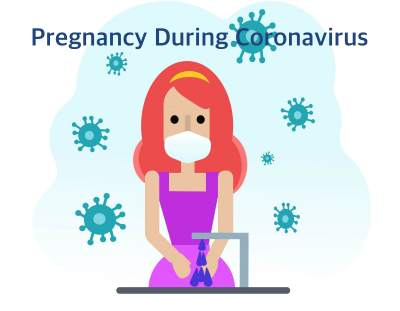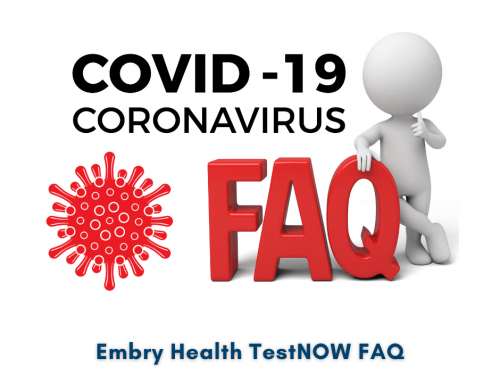What Should You Know About Pregnancy During Coronavirus?
Coronavirus disease (COVID-19) Situation Dashboard
The Coronavirus or Covid-19 was first discovered in Wuhan, China, in 2019 and has spread globally, causing a pandemic. It is an infectious disease which is caused by SARS-COV2 or severe acute respiratory syndrome coronavirus 2. This disease is an acute respiratory infection that targets the lungs. Common symptoms include shortness of breath, fever, and cough. Sore throat, diarrhea, muscle pain, and sputum production are less common signs. The majority of the cases have mild symptoms, but the more serious ones can suffer from pneumonia with acute respiratory problems and can cause multi-organ failure.
The virus spreads through respiratory droplets that are released by coughing. Also, if someone touches a contaminated surface and then touches their face, even then, the virus can be spread. The coronavirus can live on surfaces for up to 72 hours, depending on the material it is on. The time gap between exposure and appearance of symptoms can be between 2-14 days with an average of 5 days. It is diagnosed via a nasopharyngeal swab and a technique known as a reverse transcription-polymerase chain reaction. Frequent handwashing, use of masks, and social distancing are measures for preventing the infection.
Effect of coronavirus on pregnant women
Usually, a pregnant woman is not at risk or likely to be more severely ill, as compared to any normal healthy adult, if they are infected by coronavirus. It is expected that the majority of expecting women will only experience mild to moderate flu or cold-like symptoms. Severe symptoms such as pneumonia are seen in older people who have long-term medical conditions or have a weak immune system.
Till now, there hasn’t been any evidence that suggests that pregnant women are at a higher risk of having complications than any other individual. Any woman who feels the symptoms of coronavirus must contact medical professionals and get a diagnosis. Depending on her condition, she would be advised medicines and a certain level of care.
Effect of coronavirus on unborn children or fetuses in a pregnant woman’s womb
Currently, this is a very new virus, and researchers are still learning and studying it. However, there is no such risk of miscarriage due to this virus. Nor is there evidence that the virus can be passed on to the unborn child or during birth to the newborn (vertical transmission). Although there have been reports of 2 vertical transmissions, in both cases, it has been unclear when the transmission took place. In another report, four women with coronavirus gave birth to babies who weren’t infected. Experts say that there are chances of exposure to babies during birth, but the virus cannot affect the baby’s development.
Some women in China, with symptoms of coronavirus, did give birth to premature babies, but it is unclear if the virus caused this or if the delivery was deliberately caused to manage the mother’s health. The UK is conducting a study on covid-19 infected pregnant women, but the results are yet to be determined.
Breastfeeding During Coronavirus
Breast milk is crucial for a newborn’s nutrient needs and the best source of food. A lot is still unknown about the spread of covid-19. Human to human transmission occurs through the droplets that come out when a person coughs or sneezes, just like influenza or other respiratory pathogens are spread. In current and limited studies on women infected with covid-19 and SARS (the virus had appeared earlier), the virus hadn’t been found in the mother’s breast milk. However, the full extent of the transmission of the covid-19 virus through breast milk is unknown.
As breastfeeding is important for the infant, the mother must take precautions and breastfeed. The decision to start or even continue breastfeeding the newborn infant depends on the mother, in consultation with the family. Washing hands and using the mask are some precautions the mother can take while breastfeeding.
FAQs Related to Pregnancy During Coronavirus
-
Are pregnant women part of the vulnerable group in getting Covid-19? If so, why?
As per the Chief Medical Officer, pregnant women were placed under a vulnerable category on 16th March. This requires pregnant women to reduce social contact by way of social distancing.
Based on the results that have been collected this far, pregnant women are not more likely to contract coronavirus than anyone else. It has also been noted that pregnancy in certain women can alter how the body handles viral infections. But this is something that doctors and midwives have always known. Right now, there isn’t any evidence that says that a pregnant woman who has this infection is at the risk of facing more serious complications than a normal adult.
The reason why pregnant women are placed in a vulnerable category in relation to coronavirus is that some viral infections are worse in women who are expecting. Even though there isn’t any evidence right now, that suggests there are risks to pregnant women, but the studies are also limited, as the virus is new.
-
How much of a threat is CoVID-19 to pregnant women?
COVID-19, the current pandemic, is a relatively new viral strain. Because of this, scientists are still to learn more about it – about the threats it presents and its characteristics. Similar strains like this coronavirus have come before in the form of SARS and H1N1, but the current coronavirus (covid-19) is a new strain. The American College of Obstetricians & Gynaecologists suggests that right now, there is not much reliable and quantifiable data that can hint towards the threat to nursing mothers and pregnant women.
Based on studies on other coronaviruses that took the form of pandemics in the past like MERS or SARS, it is reasonable to assume that pregnancy can suppress the immune system, and because of this, pregnant women are at a higher risk for illness. The current report is reassuring that there are measured risks of the disease in pregnant women, just like the general population.
Some data suggest an increase in risks of obstetric complications like preterm labor and birth. If a woman has covid-19 during the time of birth, then isolation and quarantine requirements may cause some women to be separated from the baby after birth.
The threat of being separated from babies is highest in nursing mothers as mother’s milk is crucial for a newborn. The CDC suggests that women must take precautions to prevent coronavirus infections from reducing the chances of mother to child transmission during breastfeeding.
-
Can pregnant women pass the virus to their fetus?
Not much is known about the transmission of the coronavirus or covid-19 from mother to child or woman to fetus during delivery or pregnancy. No infants till now, who were born to mothers with covid-19have tested positive for the virus. In a small sample, the virus wasn’t found in breastmilk or amniotic fluid either.
There is limited information on the intrauterine transmission for other coronaviruses such as MERS or SARS. Women to fetal transmission have also not been found in either of these cases. However, the transmission of the novel coronavirus or covid-19 from mother to infant post-birth through respiratory droplets is a concern, and there have been cases reporting such transmission to newborns soon after birth. In order to reduce such risk, the separation of the newborn from the mother for a few days may be recommended by the healthcare team.
-
What precautions should pregnant women take during coronavirus?

Pregnant women must take the same precautions as the general public. They can prevent the spread of the infection by covering their mouths while coughing, avoiding sick people, and cleaning hands with alcohol-based sanitizer or soap and water.
There are no specific travel restriction son pregnant women, but they must consider the implications of getting sick while travelling or being quarantined elsewhere and unable to return home. What if they would have to deliver the child in a different country, what would be the peace of mind or comfort, and what would be the plan for child care? These are somethings she would have to think of. Pregnant women must exercise caution while traveling, especially if they are closer to their due date.
If an expecting woman has flu-like symptoms, then she must contact her doctor immediately before going to a hospital. A hospital can be a place for other infections. Wearing a mask may help if she is around sick people.
-
What should a pregnant or nursing woman do if they get flu-like symptoms?
If a pregnant woman does get flu-like symptoms, then she must speak to her doctor. Do not go into an emergency room unless you have respiratory problems. The testing for covid-19 is limited, and like most respiratory illnesses, there is the supportive treatment of mild symptoms. Most adults of reproductive age have experienced mild symptoms of the disease.
The coronavirus can spread very fast, but the main preventive measure is hygiene. Wash your hands thoroughly, covering each area carefully and for 20 seconds. Do cover your mouth while coughing or sneezing or use a tissue. If that isn’t possible, cough or sneeze into your elbow. Governments in populated countries are trying to decrease the peak of the epidemic, which is also known as flattening the curve. So, stay indoors and follow the government directive for prevention.
If you suspect that you have COVID-19 and are seeking an evaluation of the disease, please contact your healthcare provider and local or state health department immediately. Click here to download the COVID-19 patient resource, and click here to access a list of frequently asked questions.
References
- Effects of Coronavirus on Pregnant women: Reference taken from cdc.gov
- Pregnancy threat and how to take care: Reference taken from healthywomen.org/ and rcog.org.uk
- Precautions to be taken: Reference from healthywomen.org and cdc.gov/


